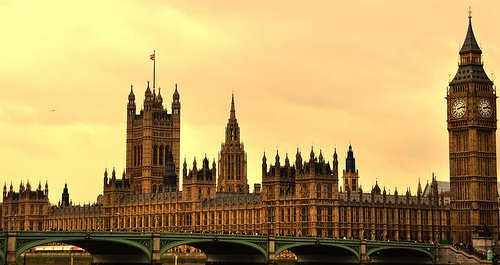Hands up all those who haven’t yet realised we, as a country, are in the greatest financial mess we have experienced for decades.
Hands up all those who haven’t been slightly rankled by politicians preaching we all need to pull together in our ‘Big Society’ and work longer hours for less money.
Hands up all those who aren’t irritated by the fact most of us will be forced to work on, and retire later, than the age agreed with the government at the time we first started work.
Finally, hands up anyone who thinks there should be different rules for politicians than for those of us who pay their wages.
It is very likely that the only hands we will ever see raised are those of MPs who are trying to vote for themselves – what most manual workers used to dread in recessionary times – A FOUR DAY WEEK.
The only difference is those manual workers would only have been paid for working four days in order to save their companies from going under; our MPs will still continue to be paid the same amount while our country is going under.
Although on most Fridays of the year the Commons is likely to resemble a ghost town, as most MPs travel to their constituencies on a Thursday evening, they are still required to attend Westminster on 13 Fridays in any one session of Parliament to debate Private Members’ Bills.
However, many sitting MPs are apparently feeling a little jaded and feel it is time for some family-friendly reforms.
The proposed plan has been drawn up by the Commons all-party Procedure Committee after a year of research but, speaking as one of millions who employ MPs, I don’t recall being consulted. The plan also advocates finishing midweek sittings earlier, which, shock horror, sometimes finish as late as 10pm. This would allow them to go home earlier but, after the scandals of recent years, it is not certain whose homes they would be going home earlier to.
Labour MP Dame Joan Ruddock told the committee:
‘Many MPs say the hours are so long they are perpetually tired. They are stressed by their jobs, with personal lives suffering as a consequence. Starting and finishing earlier would give them more control over the remaining hours of the day.’
They could then go for an end-of-day drink in one of their subsidised bars, or a nice meal in one of their subsidised restaurants or if they are feeling particularly energetic, loosen up those political paunches in their subsidised gyms. I wonder where the subsidies come from?
We all feel tired, we are all stressed by our jobs, and all our personal lives are suffering as a consequence. MPs, however, are rewarded handsomely for the privilege of a job as a public servant; millions of others are not!
Not all MPs are in agreement with the proposed changes and former Foreign Secretary, Jack Straw, told the committee:
‘I plead with you, particularly with the expenses scandal, to think very carefully about the reputational damage that will happen if it appears that the House is reducing the number of sitting days.’
Ah yes, I had almost forgotten about the reputational damage caused by the expenses scandal!
Robert Oxley of the Tax Payers Alliance said:
It would send out utterly the wrong message.”
With MPs only spending 34 weeks a year at Westminster and with Parliament sitting for an average 32 hours per week, they already have around 18 weeks per year for ‘family-friendly’ time and constituency work.
Personally, I think the message would be very wrong!
If they can just manage to survive the exhaustion for another ten days, they can then recuperate during the seven weeks that Parliament is in summer recess.
It’s a tough life but I guess someone has to do it!
Picture courtesy of Rajan Manickavasagam
